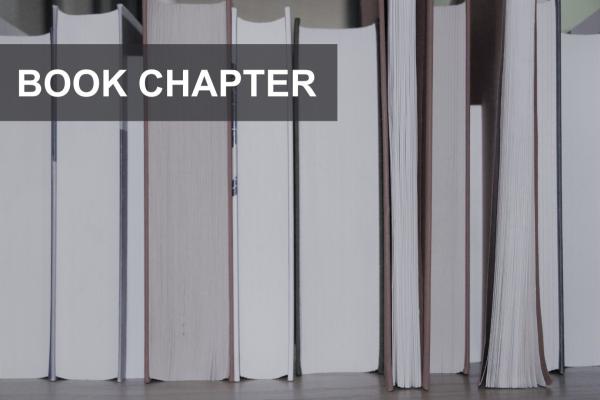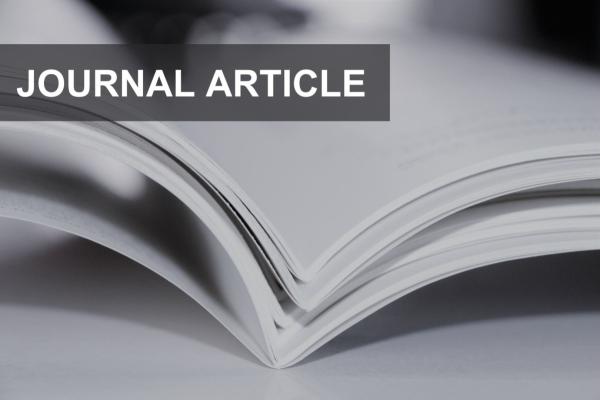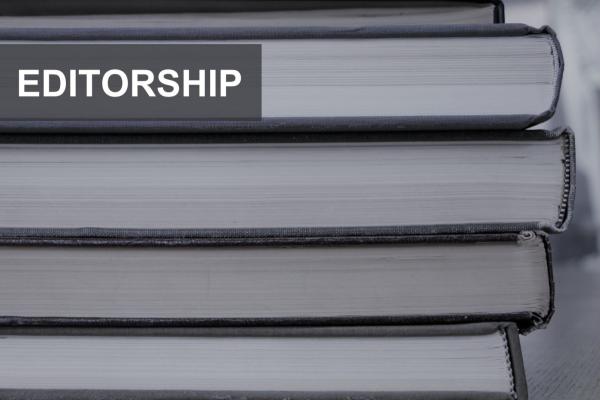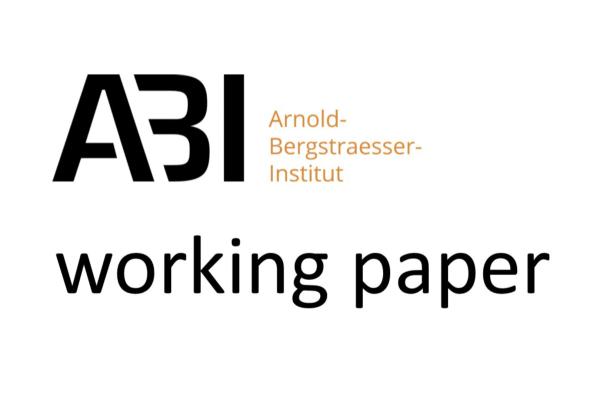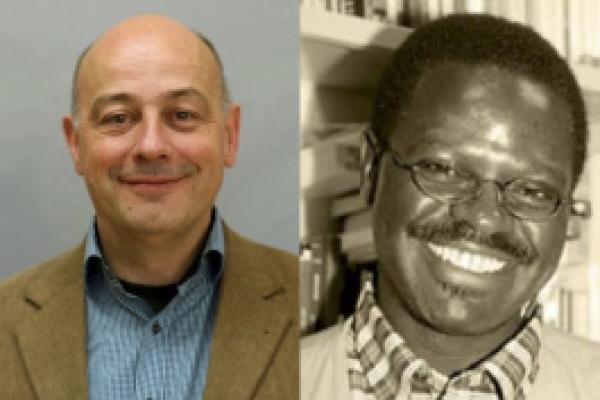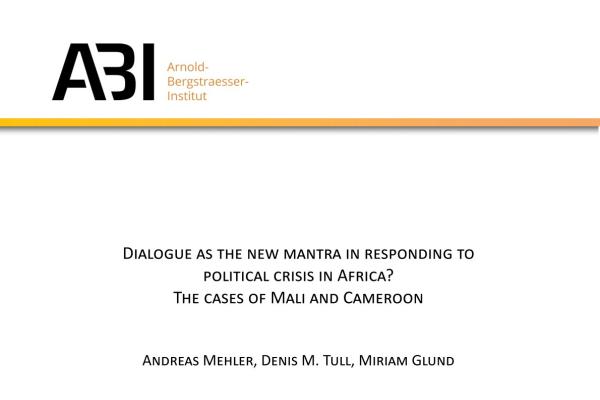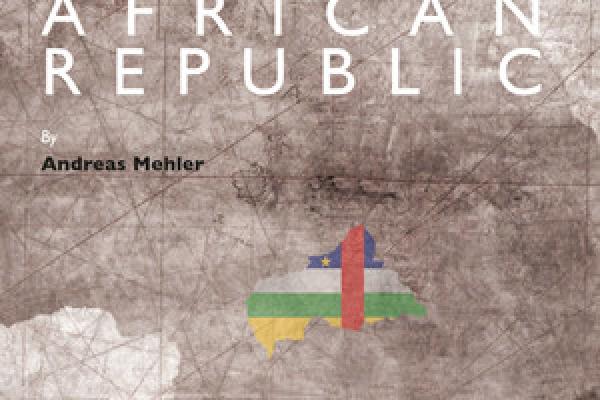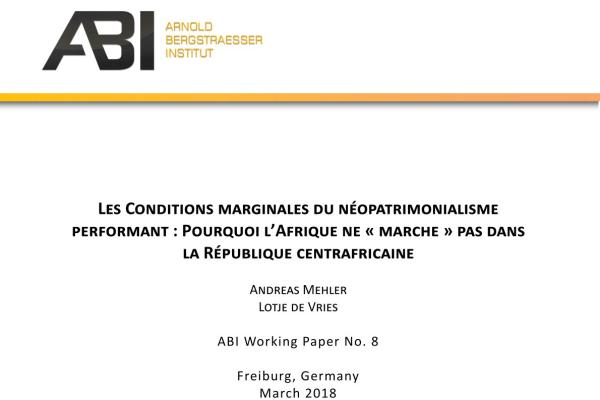
Andreas Mehler is director of the Arnold Bergstraesser Institute and Professor of Political Science at Freiburg University since October 2015 after having served as director of the GIGA Institute of African Affairs in Hamburg (2002 - 2015). He is currently President of the Executive Council of the Maria Sibylla Merian Institute for Advanced Studies in Africa (MIASA). Mehler is director of the Africa Centre for Transregional Research (ACT) at the University of Freiburg and PI/board member of GRK 2571 “Empires”. He is equally PI in the BMBF-funded research network project Hierarchies in Peace and Conflict. With various co-editors, he has published the yearly ‘Africa Yearbook. Politics, Economy and Society South of the Sahara’ at Brill publishers (Leiden; 2005 - ongoing). Mehler is member of the Afrikagesprächskreis of the Federal Foreign Office and member of the scientific advisory board of the german foundation for peace research.
2022-2025 Postcolonial Hierarchies in Peace & Conflict, BMBF
since 2020 GRK 2571: Imperien: Dynamischer Wandel, Temporalität und nachimperiale Ordnungen, DFG
2021-2023 Reziprok, Interdisziplinär und transparent. Provenienzforschung mit Restitutionsperspektive im kolonialen Kontext – Zum angemessenen Umgang mit einer Sammlung am Beispiel der Alexander-Ecker-Sammlung in Freiburg, Deutsches Zentrum Kulturgutverluste
2018-2026 Merian Institute for Advanced Studies in Africa/BMBF, approx. € 12 mio.
2014-2017 Alternatives to the production of state security in areas of extremely limited statehood (Central African Republic and South Sudan), project C10 within the DFG Collaborative Research Centre 700 (Governance in Areas of Limited Statehood); € 330,000
2010-2016 The local arena of power-sharing. Patterns of Adaptation of Continued Disorder. (in the framework of the DFG Priority Programme 1448 "Adaptation and Creativity in Africa"), DFG (2010-2016) (ME 1701/4-1 and 4-2)(with Denis Tull); € 228,000
2012-2016 Institutions for Sustainable Peace, Leibniz-Gemeinschaft/SAW-Verfahren (with Matthias Basedau and Sabine Kurtenbach), € 805,000
2012-2015 ‘Power-sharing’ in postconflict situations: On the institutional prerequisites for lasting peace, DFG ME 1701/6-1, 6-2 € 381,000
since 2018 President / Member Executive Council of MIASA
2018 – 20 President of CrossArea
since 2020 Director, Africa Centre for Transregiónal Research at Freiburg University
since 2005 Editor, Africa Yearbook (Brill Publishers, Leiden)
2009-2018 Editor Africa Spectrum (SSCI-rated, open access Journal)
2000-2016, since 2020 Member of the Board, African Studies Association in Germany (VAD)
2008-2016 Member of the Board, Africa-Europe Group for Interdisciplinary Studies (AEGIS)
with Alexander Makulilo und Mohamed Haji (2024): „Rooted in Society? From “Elite” to “People-Centred” Power Sharing in Zanzibar“, in: Africa Review, 16 (4), 389-409. peer reviewed
(2022): „Academic Cooperation in the Humanities and Social Sciences: A Post-COVID Future “, in: African Futures, Africa-Europe Group for Interdisciplinary Studies, 2022 (Band 27), 367–374. peer reviewed
with Wazi Apoh (2021): „Vom Rande aus betrachtet. Das Humboldt-Forum und die Restitutionsdebatte“, in: Welttrends, 2021 (179), 54-58.
(2020): A Decade of Central African Republic A Decade of Central African Republic Politics, Economy and Society 2009-2018. Leiden: Brill.
with Wazi Apoh (2020): „Mainstreaming the Discourse on Restitution and Repatriation within African History, Heritage Studies and Political Science“, in: Contemporary Journal of African Studies, 7 (1), 1-16.
with Tim Glawion and Lotje De Vries (2019): „Handle with Care! A Qualitative Comparison of the Fragile States Index's Bottom Three Countries: Central African Republic, Somalia and South Sudan“, in: Development and Change, 50 (2), 277-300. peer reviewed
with Caroline Hartzell (eds.) (2019): Power Sharing and Power Relations After Civil War. Boulder/Colorado: Lynne Rienner Publishers.
with Claudia Simons, Franzisca Zanker and Denis Tull (2013): Power-sharing in Africa’s war zones: how important is the local level?, in: Journal of Modern African Studies, 51 4, 681-706.
(2012): „From "Protecting civilians" to "for the sake of democracy" (and back again). Justifying intervention in Côte d'Ivoire”, in: African Security, 3-4, 199-216.


